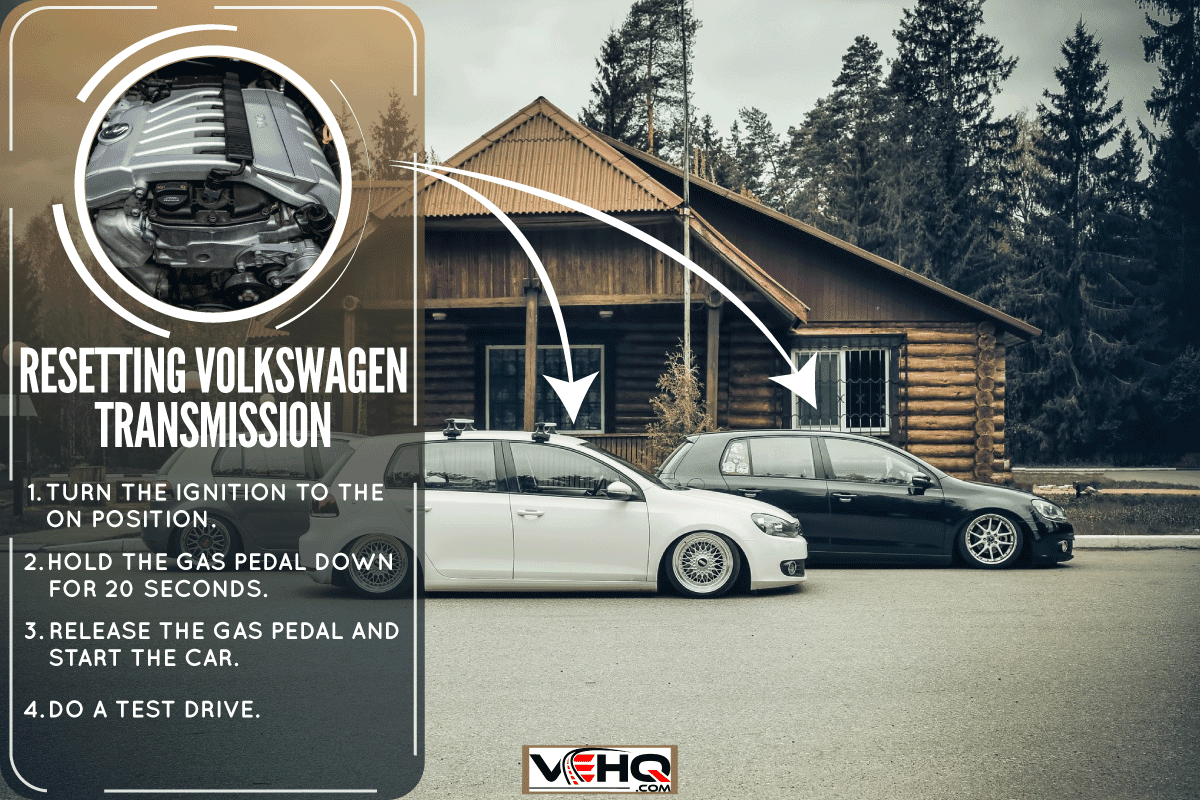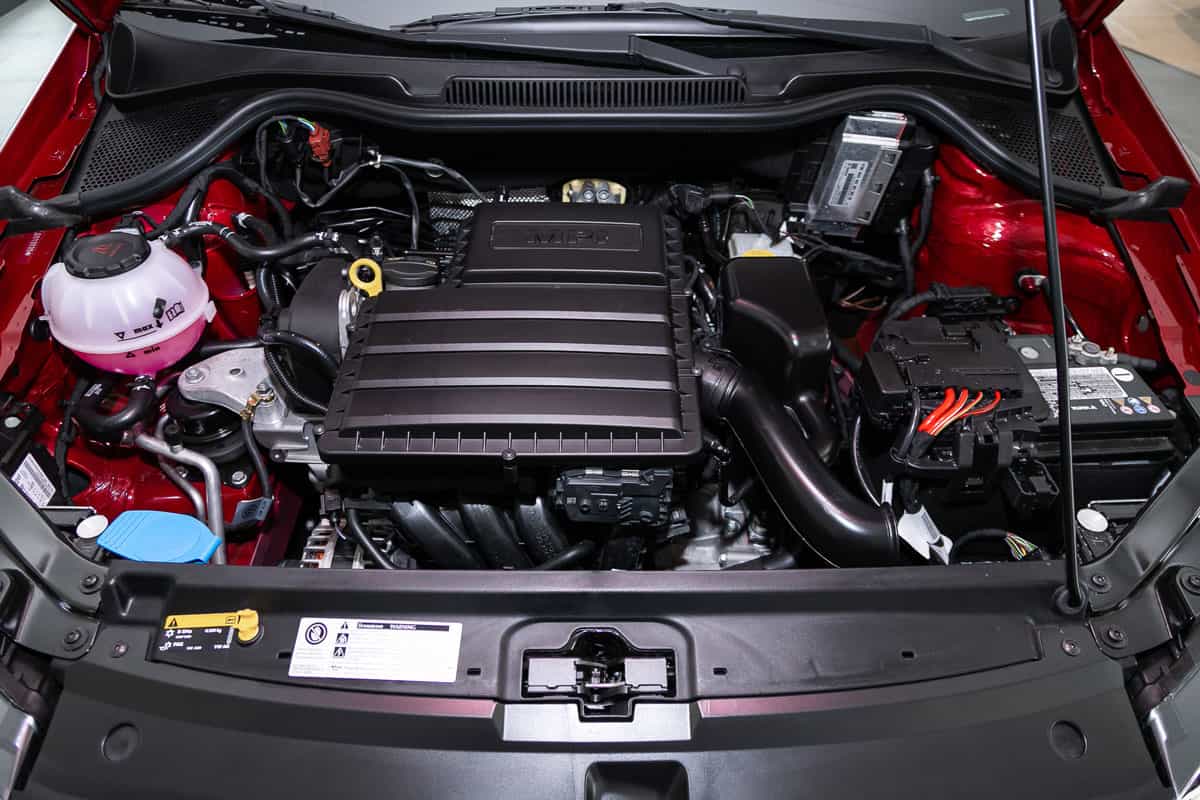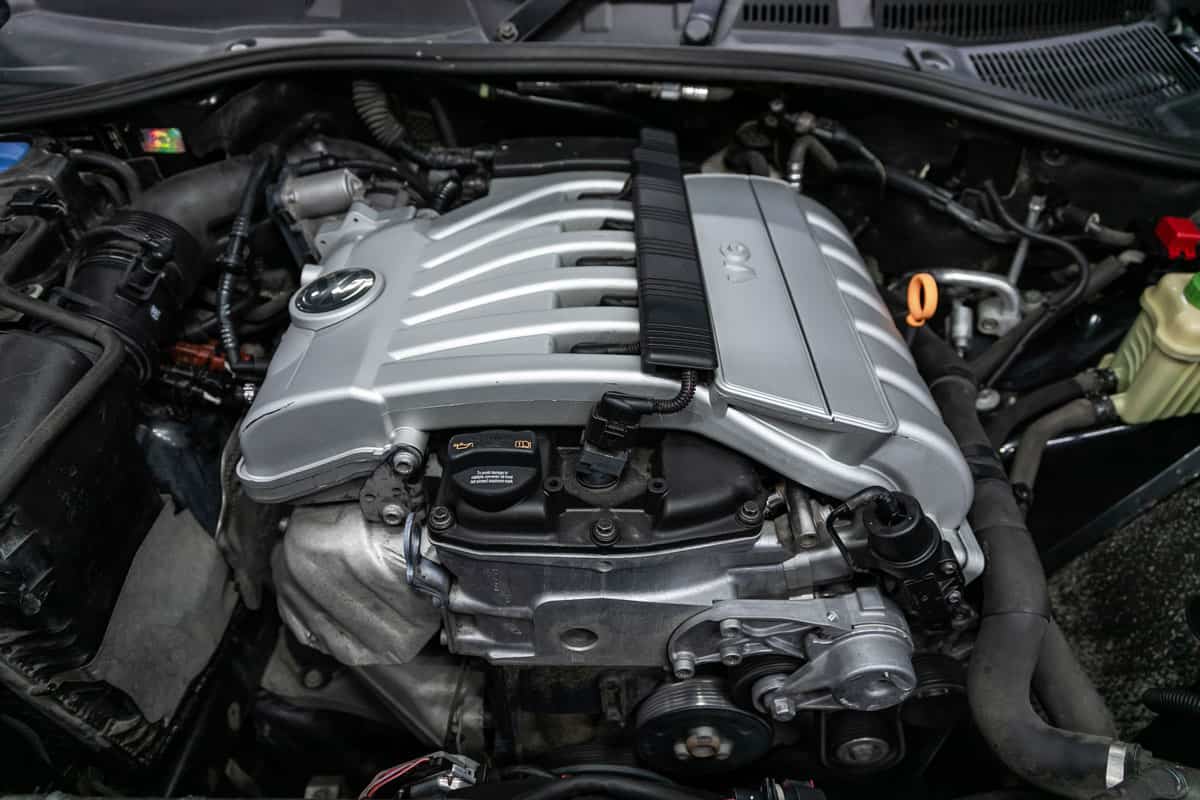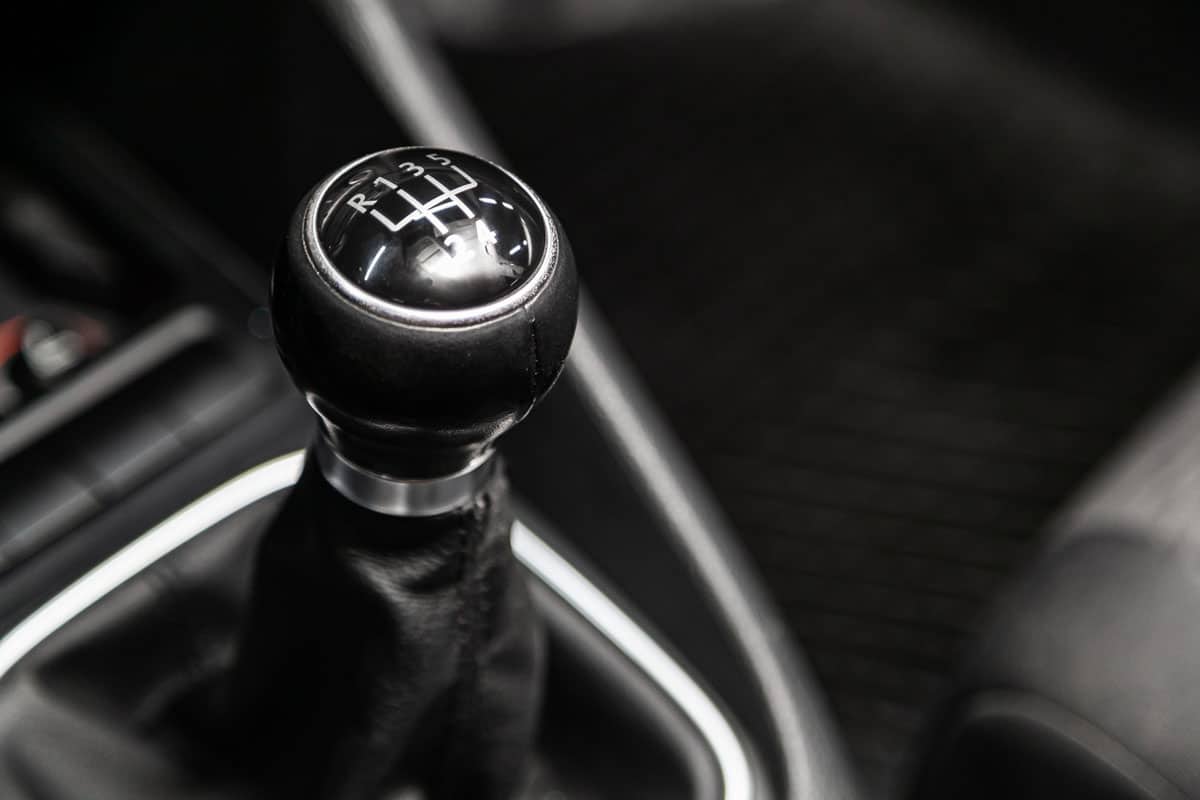If your Volkswagen doesn't seem to be running the same after transmission work, it may be time to do a transmission reset. But how do you reset the transmission? We did the research to bring you the answer.
In order to reset your Volkswagen transmission, follow these steps:
- Turn the ignition to the on position.
- Hold the gas pedal down for 20 seconds.
- Release the gas pedal and start the car.
- Do a test drive.
As you can see, resetting the transmission in your Volkswagen is a pretty simple process. In this article, we will explain why you would need to do this as well as the procedure itself. In addition, we will answer other frequently asked questions about Volkswagen transmission, so read on!

How To Reset A VW Transmission
No matter if it's a Volkswagen or any other vehicle, the transmission is a vital part of its proper function. In order to have a clear understanding of how it works, let's first define what transmission is.
The transmission is a system in a vehicle that transfers power from the engine to the wheels. It's what makes your car move forward or backward when you press on the gas pedal. The engine produces power, and the transmission distributes it to the wheels.
Like the engine, the transmission has other mechanical parts that can fail or need to be replaced over time. Even though the transmission part is replaced, your VW may not run the same.
The reason being is that the system needs to relearn your driving habits, and the best way to do that is by resetting it.
For example, a solenoid, clutch, or even a transmission flush could have been done on your car. All these procedures could change the way your car drives, and a reset will help the system to relearn everything.
In addition, transmission resets are often required after certain services are performed on the vehicle. The most common service is a transmission flush, which is when all the old transmission fluid is removed and new fluid is put in.
A transmission reset will ensure that your car's transmission works correctly and efficiently. To be clear on how to do the reset on a VW transmission, we've outlined the steps below in greater detail:

1. Turn The Ignition To The On Position
With the car in park, turn the ignition to the on position. Do not start the engine at this time. Having the key in the on position will activate all the car's electrical components.
2. Hold Gas Pedal For 20 Seconds
Hold the gas pedal down to the floor for at least 20 seconds. This will activate the VW transmission reset process.
3. Release Gas Pedal And Start Car
After 20 seconds, release the gas pedal and start the car. The reset is now complete, and your transmission should be working properly.
It's important not to turn the car off after releasing the gas pedal, as it may void the reset. If this happens, you'll have to start the process all over again.
4. Do A Test Drive
After the reset is complete, take your car for a test drive. Pay attention to the way it drives and see if there's any difference. The transmission may seem smoother, and the gears may change quickly.
If you don't notice any difference, don't worry. It may take a little while for the system to relearn your driving habits. However, if the transmission still seems to be having issues, then it's best to take it to a mechanic.
If you're more of a visual learner, check out this YouTube video that discusses the process:
How Much Does It Cost To Fix A VW Transmission?
The cost to fix a VW transmission varies widely. Due to the fact that there are many different transmission problems, it's hard to give an exact price. For example, something as simple as a transmission fluid change could cost around $100.
However, if the problem is more serious, such as a blown transmission, then the repair could be upwards of $3,500. The best way to know how much it will cost to fix your car is by taking it to a mechanic and having them diagnose the problem.
Keep in mind that the cost of the repair will also depend on the year, make, and model of your car. Some cars are simply more expensive to fix than others.
Lastly, the mechanic's labor rates will also affect the cost. If you take your car to a dealership, then the labor rates will be higher than if you take it to an independent mechanic.
At the end of the day, the best way to avoid costly transmission repairs is by maintaining your car and having regular check-ups. This way, you can catch any problems early on and fix them before they become more serious.

How Often Should You Change A VW's Transmission Fluid?
Depending on whether you have a VW with a manual or automatic transmission, the frequency at which you should change your transmission fluid will differ.
For manual transmissions, it's recommended that you change the fluid every 30,000-60,000 miles. VW owners who have an automatic transmission should change the fluid every 60,000-100,000 miles.
Of course, these are just general guidelines. The best way to know how often to change your transmission fluid is by checking your car's owner's manual. In the manual, it will give you the specified interval for your car.
It's important to change your transmission fluid on schedule because it helps to keep your transmission in good working condition. Old transmission fluid can cause your transmission to overheat and break down.
If you are interested in buying a used Volkswagen, then ask the seller about when the last transmission service was. If it's been a while, then you may want to have the fluid changed before making a purchase.

What Are The Symptoms Of A Bad VW Transmission?
There are many different symptoms that can indicate a bad transmission. Some of the most common symptoms include:
- The car is slipping out of gear.
- The gears are grinding.
- The car is hesitating when accelerating.
- The transmission fluid is leaking.
- There's a burning smell coming from the car.
If you notice any of these problems, then it's best to take your car to a mechanic right away. They will be able to diagnose the problem and let you know what needs to be done to fix it.
Keep in mind that these are just some of the most common symptoms. There are many other less common symptoms that can indicate a problem with the transmission.
How Long Does A VW Transmission Last?
With proper maintenance, a VW transmission can last a long time. Typically, you can get 200,000 miles or more out of a Volkswagen transmission.
Of course, there are many factors that will affect how long your car's transmission will last. For example, the type of transmission fluid you use can make a big difference.
It's also important to change the fluid on schedule. If you don't, then it will cause the transmission to overheat and break down.
Lastly, the way you drive will also affect the lifespan of your car's transmission. If you're constantly shifting gears rapidly or driving in stop-and-go traffic, then it will wear down the transmission quicker.
If you take good care of your car, then you can expect the transmission to last a long time. However, if you don't maintain your car properly, then you may start having problems earlier than expected.

Is It Better To Fix Or Replace A VW Transmission?
If your Volkswagen has higher miles than average, then it may be time to start thinking about replacing the transmission.
Of course, there are many factors that will affect this decision. For example, the cost of parts and labor will play a big role in determining whether or not it's worth fixing your car.
Another factor to consider is the condition of the rest of your car. If your car is starting to have other problems, then it may not be worth fixing the transmission.
Also, it depends on what exactly is wrong with the transmission. If it's a simple problem, then it may be worth fixing. However, if the problem is more serious, then it may be best to replace the transmission.
Ultimately, the decision of whether to fix or replace your car's transmission will come down to a number of different factors. You'll need to weigh the benefits and drawbacks of each option before making a decision.
A qualified Volkswagen mechanic will give you options and help you make the best decision for your car.
Final Thoughts

Overall, if you're having problems with your car's transmission after a repair, try the reset method. This can help to get your car back to normal. If you're still having problems, then it's best to take your car to a mechanic. They can do a reset or pinpoint the exact problem.
Made it to the end? Here are other articles you might find helpful:
Does The Volkswagen Golf Have A Sunroof?
